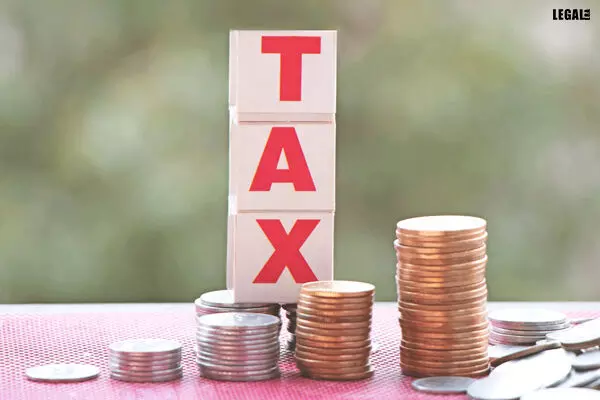- Home
- News
- Articles+
- Aerospace
- Artificial Intelligence
- Agriculture
- Alternate Dispute Resolution
- Arbitration & Mediation
- Banking and Finance
- Bankruptcy
- Book Review
- Bribery & Corruption
- Commercial Litigation
- Competition Law
- Conference Reports
- Consumer Products
- Contract
- Corporate Governance
- Corporate Law
- Covid-19
- Cryptocurrency
- Cybersecurity
- Data Protection
- Defence
- Digital Economy
- E-commerce
- Employment Law
- Energy and Natural Resources
- Entertainment and Sports Law
- Environmental Law
- Environmental, Social, and Governance
- Foreign Direct Investment
- Food and Beverage
- Gaming
- Health Care
- IBC Diaries
- In Focus
- Inclusion & Diversity
- Insurance Law
- Intellectual Property
- International Law
- IP & Tech Era
- Know the Law
- Labour Laws
- Law & Policy and Regulation
- Litigation
- Litigation Funding
- Manufacturing
- Mergers & Acquisitions
- NFTs
- Privacy
- Private Equity
- Project Finance
- Real Estate
- Risk and Compliance
- Student Corner
- Take On Board
- Tax
- Technology Media and Telecom
- Tributes
- Viewpoint
- Zoom In
- Law Firms
- In-House
- Rankings
- E-Magazine
- Legal Era TV
- Events
- Middle East
- Africa
- News
- Articles
- Aerospace
- Artificial Intelligence
- Agriculture
- Alternate Dispute Resolution
- Arbitration & Mediation
- Banking and Finance
- Bankruptcy
- Book Review
- Bribery & Corruption
- Commercial Litigation
- Competition Law
- Conference Reports
- Consumer Products
- Contract
- Corporate Governance
- Corporate Law
- Covid-19
- Cryptocurrency
- Cybersecurity
- Data Protection
- Defence
- Digital Economy
- E-commerce
- Employment Law
- Energy and Natural Resources
- Entertainment and Sports Law
- Environmental Law
- Environmental, Social, and Governance
- Foreign Direct Investment
- Food and Beverage
- Gaming
- Health Care
- IBC Diaries
- In Focus
- Inclusion & Diversity
- Insurance Law
- Intellectual Property
- International Law
- IP & Tech Era
- Know the Law
- Labour Laws
- Law & Policy and Regulation
- Litigation
- Litigation Funding
- Manufacturing
- Mergers & Acquisitions
- NFTs
- Privacy
- Private Equity
- Project Finance
- Real Estate
- Risk and Compliance
- Student Corner
- Take On Board
- Tax
- Technology Media and Telecom
- Tributes
- Viewpoint
- Zoom In
- Law Firms
- In-House
- Rankings
- E-Magazine
- Legal Era TV
- Events
- Middle East
- Africa
NCLT directs IT department to remit TDS back to Precision Fasteners

NCLT directs IT department to remit TDS back to Precision Fasteners
The ruling is expected to set a precedent in several cases where the revenue hopes to recover statutory dues from companies facing liquidation
The Mumbai Bench of the National Company Law Tribunal (NCLT) has directed the Income Tax Department to return the tax deducted at source (TDS) from Precision Fasteners Limited after the auto-component maker was referred for liquidation.
The bench comprising Justice PN Deshmukh (Judicial Member) and Shyam Babu Gautam (Technical Member) ordered, "We have heard the counsel for the applicant (liquidator). We are satisfied and, accordingly, the Deputy Commissioner of Income Tax is directed to remit back the amount to the corporate debtor company."
The liquidator of the company had approached NCLT to recover about Rs.1 crore deducted from the company as TDS. This was done despite a moratorium under the insolvency and bankruptcy law.
In 2017, Precision Fasteners was admitted under the Corporate Insolvency Resolution Process (CIRP) on a petition filed by Asset Reconstruction Company India.
However, in the absence of any viable resolution plan, the tribunal allowed the resolution personnel's petition to admit the company for liquidation.
Last year, the liquidator approached the tribunal after the revenue department deducted the TDS of over Rs.98 lakh on certain transactions, despite the fact that the company was under liquidation.
Under the Insolvency and Bankruptcy Code (IBC), statutory dues, including to the IT department, are operational dues and under the waterfall mechanism, liquidation cost, secured creditors and workmen of the company get priority to receive their dues.



